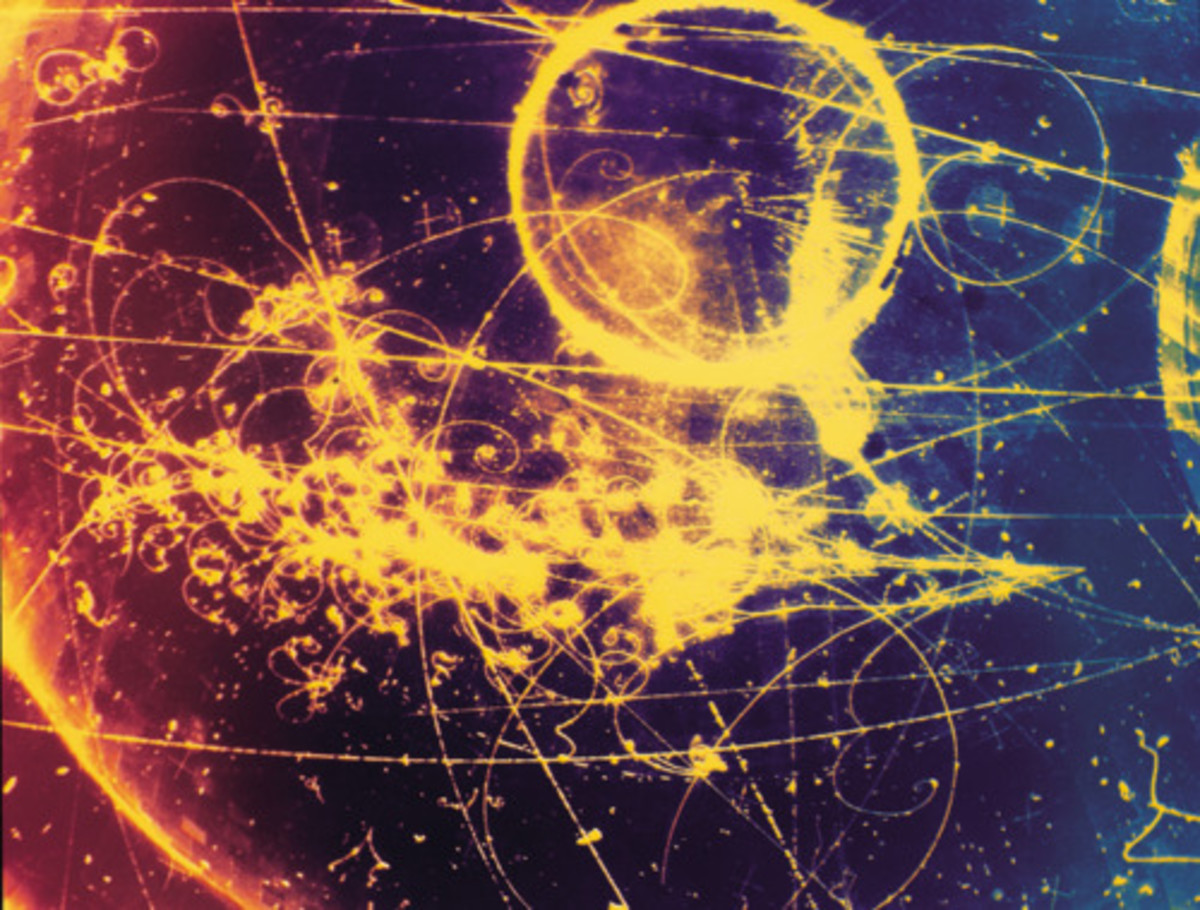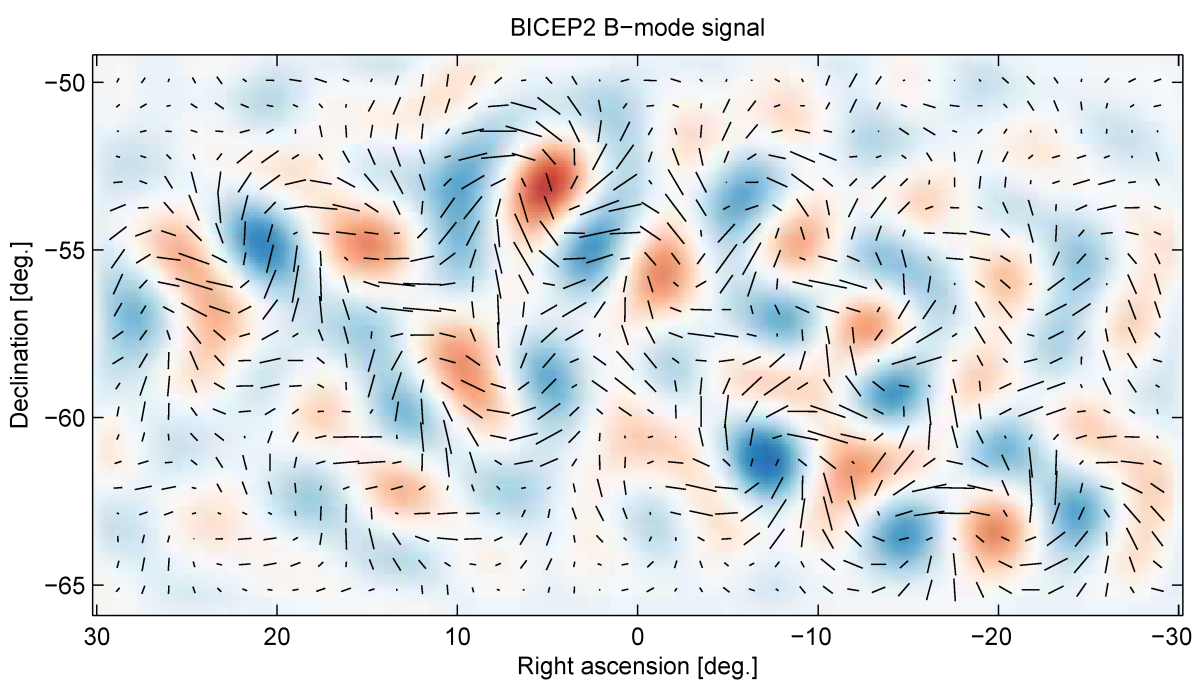The Universe is Absurd: it's called the Higgs Boson
What is the Higgs Boson, in a nutshell?
The Higgs Boson is a particle that has effectively proven a vastly more important theory, the Higgs field. Both of these theories were postulated in the 1960s by theoretical physicist Peter Higgs. These theories have since been proven by the efforts of the Large Hadron Collider (LHC) at CERN in Switzerland.
The only reason the Higgs Boson has gained so much popularity is because it is the only way theorized to analyze the postulated Higgs field. The Higgs field exists in all of spacetime, and gives mass to neutrinos, quarks, leptons, W and Z particles. The Higgs field does not give mass to gluons, photons and gravitons, they are massless particles.
The Higgs field can be thought of as a frictional immersive fluid, through which particles are attempting to move. Particles which interact with the Higgs field experience a tugging phenomenon that prevents them from moving at a universal limit, the speed of light. This interaction imparts the quality of momentum, which we use to infer mass. Momentum means these particles require energy to accelerate them, which is our main basis in establishing the illusion of mass and matter.
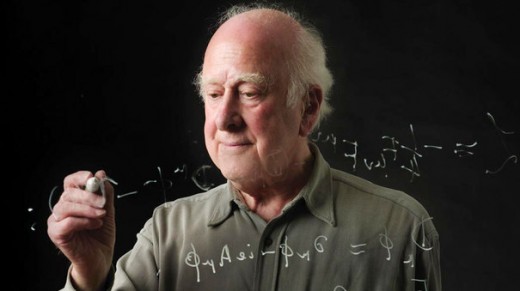
Who discovered the Higgs, and how do they know it exists?
The Higgs Boson was theorized to occupy one of few very specific energy frequencies occurring after the annihilation of highly accelerated photons. This previously theoretical particle was the last unknown bastion of the complete Standard Model of the Universe. The existence of the Higgs Boson was proven by the LHC at CERN over the course of many years, at an energy level it was previously theorized to occupy.
Though critics will highlight physicists' disdain for claiming absolute proof, this result has been deemed statistically sound at a level of 5σ, which is for all purposes indistinguishable from absolute certainty. The resulting consequence is the adoption of the Higgs field theory, which was the primary reason physicists knew to start looking for the elusive boson.
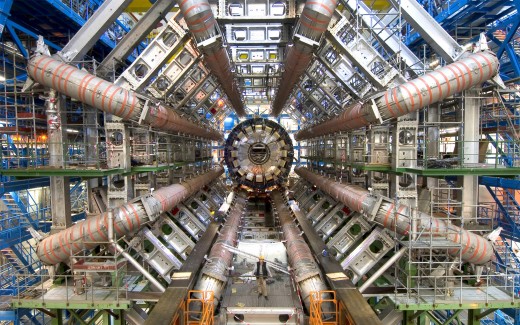
So the Higgs field gives particles mass, what is mass/matter?
We misunderstand mass as an inherent quality of reality, when really it isn't. Mass and matter are just manifestations of interactions between energy fields and quantum fundamental particles. These particles are not really particles in the usual sense, they are only semi-tangible realizations of excitation levels of energy fields. The Higgs field is just one contributor to this illusion, giving what we call mass to quarks, electrons, and other fundamental particles.
Basically what I'm telling you is that there is no such thing as solid matter in the conventional sense. Objects look solid only because light, or electromagnetic radiation, "bounces" off of them via interactions of different energy fields. In reality, the light ray that "bounces" off is not even the same light ray that hits an object. It is only the reaction of those energy levels in the electron clouds of the atoms of the object that became excited, manifested as yet another energy wave.
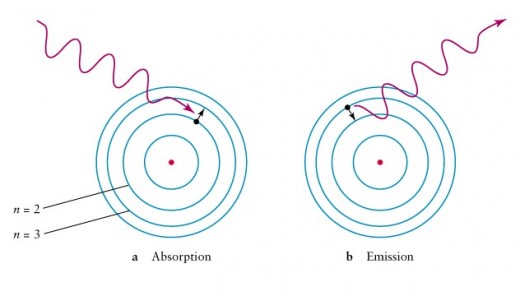
I guess that makes sense, but why do objects feel solid?
Objects only feel solid because of interactions between different collections of energy. The only reason your feet don't fall through the floor is because the electrons in the atoms of your feet are repelling the electrons in the atoms in the floor, and vice versa, via exclusion forces. The respective electron clouds in your feet and the floor cannot occupy the same space unless one of them exists in a higher energy state. This takes a lot of energy, thus there is a repelling force. What this means is that no things are really "bumping into each other," they are only interacting in a manner analogous to when magnets repel each other, albeit on a different scale and by a different mechanism.
Mass can be be thought of primarily as a collection of energy and momentum. If an object has a lot of momentum, it feels heavy. This is true even if the object is stationary, and even if the majority of its total energy comes from nuclear binding energy, which the Higgs field doesn't even really contribute to.
I understand that this all must come as quite a shock. These ideas are very counter-intuitive because we, as a species, evolved without the senses that would allow us to analyze these elusive properties without advanced machinery. Also, our prehistoric survival never hinged upon our ability to grasp these concepts. Nevertheless, this is the way stuff works.
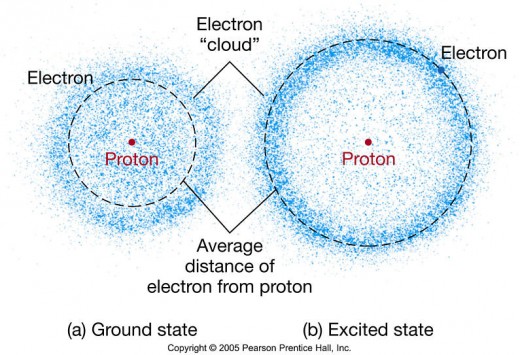
Misconception Correction #1: stop calling it the "god particle"
Leon Lenderman, who is responsible for coining the term, wanted to call it the "goddamn particle," because of how frustratingly elusive it is. Unfortunately, his publishers wouldn't allow him to use that language, and he was forced to settle for this failed comical implication.
The truth of the matter is, the Higgs Boson has no connection with god whatsoever. if we found a particle that suggested the existence of another force field, like gravity, we might as well rename the graviton the "jesus particle." While we're at it, we could name the electron the "holy ghost," or something like that. These terms do little to communicate the underlying phenomenon for which they are supposed to illustrate.
The least flimsy reason people call the Higgs the "God Particle" is because it evidences the field that gives particles mass. This is supposedly analogous to the ancient mythological teaching that a deity called "God" created a lot of things in 7 days. If anything, the Higgs should be seen not as evidence of a god, but as the replacement to a temporary placeholder in humanity's incomplete understanding of reality. We now know where matter came from, and have no more use for unsubstantiated speculation.
Misconception Correction #2: the boson doesn't create mass
Many people are confused by the thought of a particle imparting other particles with a fundamental characteristic such as mass. After all, what would this mechanism look like? The truth is, the Higgs Boson is only a by-product manifestation of the actual property at work, the Higgs field. The Higgs field is responsible for imparting particles with the quality of mass.

Misconception Correction #3: mass comes from other sources
One of the reasons the Higgs gained so much popular traction is the misinterpretation that it is responsible for all mass. The truth is, the Higgs field only accounts for about 1% of mass in a proton. The rest of this perceived mass derives from the binding energy of fundamental particles, which is represented as mass. What we typically call mass actually makes up an inconceivably small portion of the total energy contained in an atom.
Please Note: this article is not an attack on anyone's freedom of thought. I openly and honestly encourage everyone reading this to analyze and criticize everything that I say. You have the right to believe what you believe. This is, in no way, an attempt to rob that from you. Likewise, I expect a similar level of respect when it comes to my belief system. Please keep this in mind before you comment, but please do share your thoughts in an intelligent manner. If you find that I have made a technical or conceptual error, please let me know and I will amend this article immediately to more accurately portray the theories described herein. Thanks.



